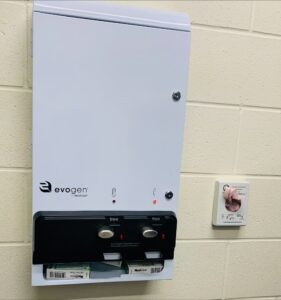
Legislation filed by Florida state Sen. Lauren Book, D-Miami, Senate Bill 248, is also called the “Learning with Dignity Act.” It focuses on school districts making tampons and pads accessible to its students, free of charge, in each school nurse’s office or other physical school facilities.
Book last year told CD Davidson-Heirs at the Tallahassee Democrat that too many girls are leaving school during the day or not coming in “because they do not have access to menstrual products,” Book said. “Girls pay a price when these products aren’t free and providing them will go a long way toward equity in education.”
Alliance for Period Supplies found that in 2019, 1 in 4 teens in the U.S. has missed class due to a lack of access to period supplies.
Amaya Waymon, a 16-year-old junior at Rickards High School, started her own project, “The Girl Flo,” in October 2020. She aims to contribute to the end of “period poverty” in Leon County schools, similar to SB 248, after she recognized that the need for menstrual products was high while working in her school’s food pantry during middle school
On average, girls start their periods between the ages of 10-15. However, it may begin as early as 8, according to Kidshealth.org.
“Classroom supplies aren’t the only things Leon County School students need. Access to menstrual products help remove barriers to education and promote period equity,” a post on The Girl Flo’s Facebook account reads.
Waymon says she used her allowance, as well as applying for grants to provide tampons and pads to her school and other schools in Leon County.
Rickards now has a free tampon and pad dispenser in its girls’ bathrooms and Waymon was able to provide feminine hygiene products in Woodville Elementary, Nims Middle, Griffin Middle, Second Chance School, and the Success Academy at the Ghazvini Learning Center, the Tallahassee Democrat reported.
“I was working with bills regarding feminine products being in schools last year as well so, to see it come back up brings joy to my heart,” Waymon said. “I know this will be a continuous thing once it is put into action.”
Waymon says that after talking with her peers and recognizing the necessity in providing feminine hygiene products, her hopes are that more people are open to the conversation of contributing to the fight against “period poverty.”
SB 248 was introduced on Jan. 11 and has been referred to the Senate’s Education Appropriations Subcommittee on Education.